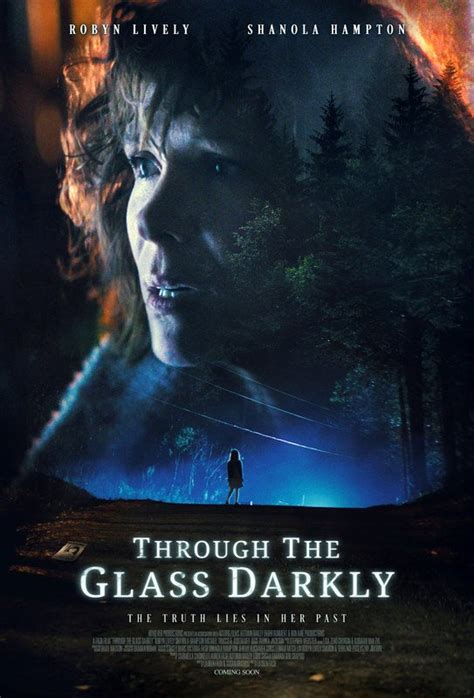Through the Glass Darkly

Description:
Set in a small, conservative town in 1997 Georgia, "Through the Glass Darkly" follows Charlie, a woman whose life is upended after her daughter’s mysterious disappearance. As she struggles with the community's suspicion and her own mental health, another girl goes missing. Charlie teams up with her estranged wife to uncover the truth, unraveling a web of secrets and lies. The film explores themes of grief, isolation, and determination in the face of societal pressure.Keywords:
Mystery, Lgbtq+, Small Town, Grief, SecretsWhat happens at the end of through a glass darkly?
At the end of "Through a Glass Darkly," Karin, who struggles with mental illness, has a poignant encounter with her family. In a moment of clarity, she expresses her longing for connection and understanding. As she isolates herself, she has a vision of God, symbolizing her search for meaning amidst her suffering. The film concludes ambiguously, leaving the audience to ponder the complexities of faith, love, and mental health. The final scene emphasizes the fragility of human relationships and the challenges of communication within the family.
What does it mean to see through the glass darkly?
"Through a Glass Darkly" is a phrase derived from the Bible, specifically 1 Corinthians 13:12, which suggests seeing things in a distorted or unclear way, as if looking through a dim or imperfect mirror. In the context of the film, it reflects the characters' struggles with understanding reality, faith, and their relationships. The title symbolizes the theme of searching for clarity and truth amid confusion and emotional turmoil. It encapsulates the human experience of grappling with life's complexities and the desire for deeper insight.
What is the movie "Through the Glass" darkly about?
"Through a Glass Darkly" is a 1961 Swedish film directed by Ingmar Bergman. The story revolves around a young woman named Karin, who is suffering from mental illness, and her interactions with her husband, her brother, and her father during a stay at a remote island. The film explores themes of sanity, faith, and the nature of reality, as Karin struggles with her deteriorating mind and seeks to connect with her loved ones. The title references a biblical verse about seeing things imperfectly, reflecting the film's exploration of perception and existential despair.
Where does the quote "through a glass darkly" come from?
The phrase "through a glass darkly" originates from the Bible, specifically 1 Corinthians 13:12, which states, "For now we see through a glass, darkly; but then face to face." This passage reflects the idea of seeing things imperfectly or obscured, symbolizing the limitations of human understanding and perception. In the context of the film "Through a Glass Darkly," directed by Ingmar Bergman, it explores themes of existentialism, faith, and mental illness, echoing the biblical notion of searching for clarity in a troubled world.
Explore More Categories: